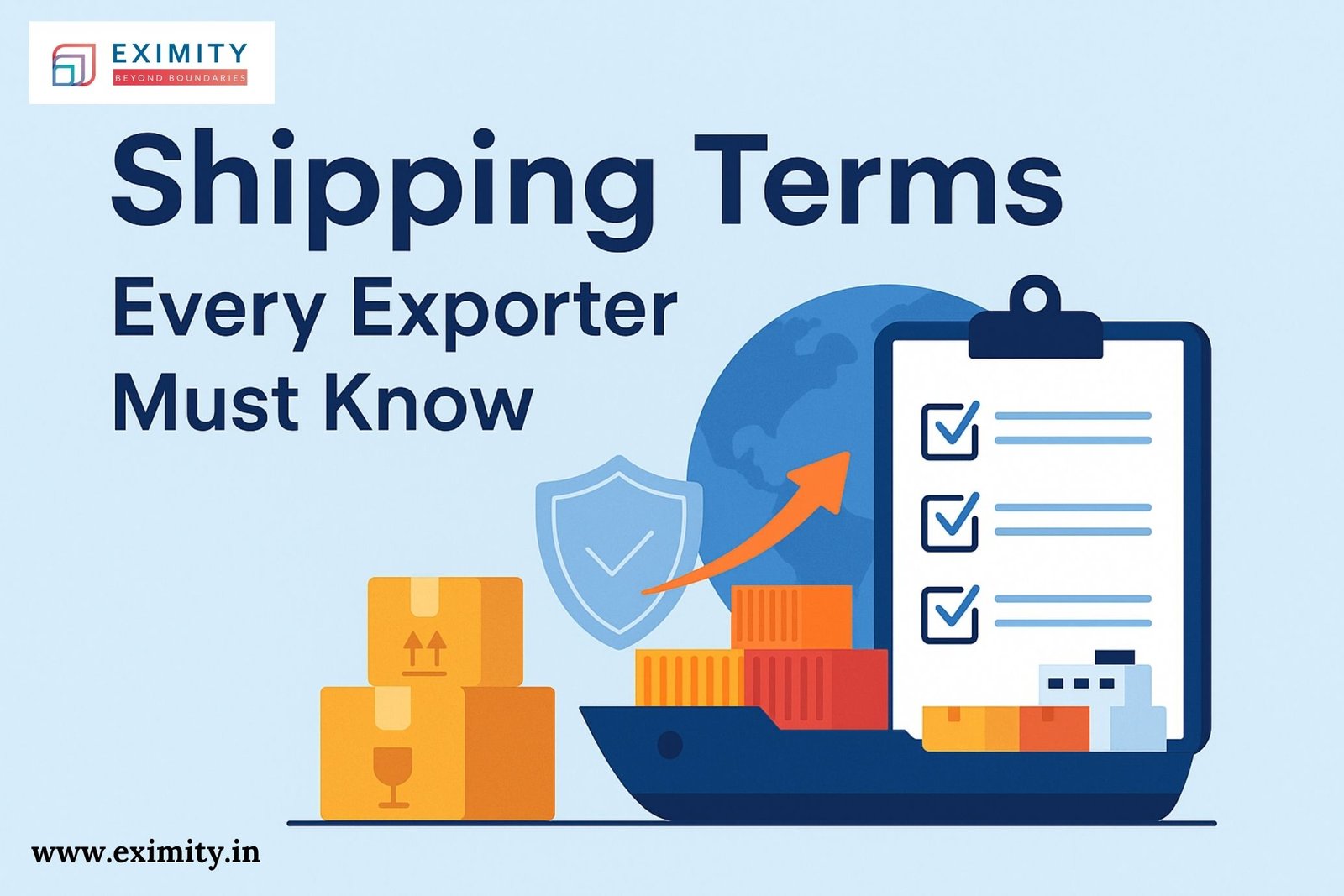Understanding the Importance of Shipping Terms
In international trade, precision matters. It is pertinent for any new or seasoned exporter to comprehend the specific components of shipping terms so as to not incur additional costs, delays, and even conflicts in business processes. These terms specify the individual obligations of all parties involved during the shipment process, also noting the costs, risks, and delivery.
Why Exporters Need to Learn Shipping Techniques
Clarified responsibility, arranging of transport, payment, freight transportation, and insurance handling are responsibilities discussed for each party.
- Minimizes Conflict: Detrimental for possible controversies between the seller and buyer.
- Improves Workflow: Create smoother coordination with logistics and customs partners.
Exporters’ Essential Shipping Terminology
Understanding shipping terminology is crucial for any international transactions. Each term has its legal, financial, and practical connotation with respect to the entire process of trade.
Important Terms of the Term
B/L (Bill of Lading): A document with legal status that acts as proof of ownership and shipment.
HS Code: A numerical code used for classifying goods in international shipping.
ETA/ETD: Estimated Time of Arrival/Departure.
Terminology: Precisely Why To Be Concerned About
Potential issues from lack of accuracy cover the set amount of lost finances beyond customs stress resulting from inaccuracies in DDP vs. DAP disputes. Using these terms and other specifics ensures the identification of related issues.
Pro Tip: Create an internal shipping terms glossary that your team can add to and reference regularly.
Freight Terms in Shipping: Who is Responsible and Who Assumes the Risk?
One of the areas that needs clarity is around freight costs. The freight terms in shipping outline which party is responsible for carrying out the transportation and when the risk is transferred.
Two Common Freight Terms
Freight Prepaid: The exporter pays for the freight until delivery.
Freight Collect: The buyer assumes responsibility and pays upon delivery.
Equally important in selecting freight terms
Product Value Does the potential value of the product outweigh the risks associated with shipping it?
Buyer Relationship—Is the buyer a new customer or a long-time buyer?
Destination Country—Are there any risks or high import taxes?
Appropriate freight terms set forth in a contract protect both parties and also ensure cost visibility.
Set Shipping Terms for Exporters: Understand Your Incoterms
Shipping terms for exporters usually involve incoterms, which fundamentally means international commercial terms published by the ICC. These terms establish a framework of responsibilities among participating parties from the stage of shipping until it reaches the agreed-upon destination.
Basic Incoterms to Know
FOB (Free on Board): Seller covers costs until the goods are loaded on the vessel.
CIF (Cost, Insurance, Freight): The seller pays for insuring and freighting the goods until they reach the destination port.
EXW (Ex Works): The buyer picks up the goods at the seller’s place of business.
Impact of Incoterms on Exporters
FOB and CIF are payment modalities that give the seller power to control expenses.
EXW allocates all burden to the customer, reducing risk but losing value in service.
Before you start using any shipping terms in your business, make sure you have an active Import Export License in India. This license is required by the government and allows you to legally send goods outside the country. Without it, your shipments can be delayed or even stopped by customs.
Delivery Terms: Aligning Expectations with Reality
People often mistake delivery terms for Incoterms, but they actually have more to do with timing, delivery method, and specific points of transfer. Establishing appropriate delivery provisions helps mitigate expectation gaps while avoiding delays in shipping.
What specifics need attention in delivery terms?
Mode of transport: sea, air, road, parcel, or courier
Delivery lead time—from production to handover
Exact destination—following the buyer’s instruction, e.g., his warehouse, port, etc.
Through detailing delivery instructions beforehand, exporters guarantee satisfaction to buyers and fewer late penalty incidents.
Why Does the Shipping Name Matter in Exporting?
Your shipping name encompasses much more than a laboratory tag — it is how your product shall be known, followed up, and cleared.
What Is the Shipping Name?
Defining a name without associating it with a ship is meaningless. Referring to a ship by its name is essential for identifying the product name used for distribution and registration purposes:
- An Invoice
- Packing List
- Shipping Label
- Customs
Consequences of Inconsistent Shipping Names
- Customs slowdown with lacking paperwork
- EC instituted an additional gap check or prostitute penalty.
- Deny entrance to captive markets.
- Consistent naming conventions for shipping across all platforms assist in navigation and enable faster customs checks.
Depending on the size of your business and the markets you serve, choosing the right logistics support can make a big difference. There are various types of Import Export Services available—ranging from customs brokerage and freight forwarding to warehousing and compliance consulting.
Conclusion: The Exporter’s Edge Lies in Clarity
Knowledge of shipping terms has the exporter best positioned at the angle of international trade.
Understanding the different sets of shipments can yield a superior advantage, boosting global trading for contract holders.
This helps you avoid misquoting, miscommunication with partners, and possibly serious legal or financial issues.
✔ Make sure shipping terminology instructions are documented correctly by using uniform shipping criteria.
✔ Select freight terms that align with your objectives and level of exposure to risk.
✔ Set delivery terms to manage expectations accurately.
✔ Always ensure that the shipping name is correct and compliant.
Making sure everything is in order from the start ensures accuracy, timely order fulfillment, profitability, and use of credible resources.

